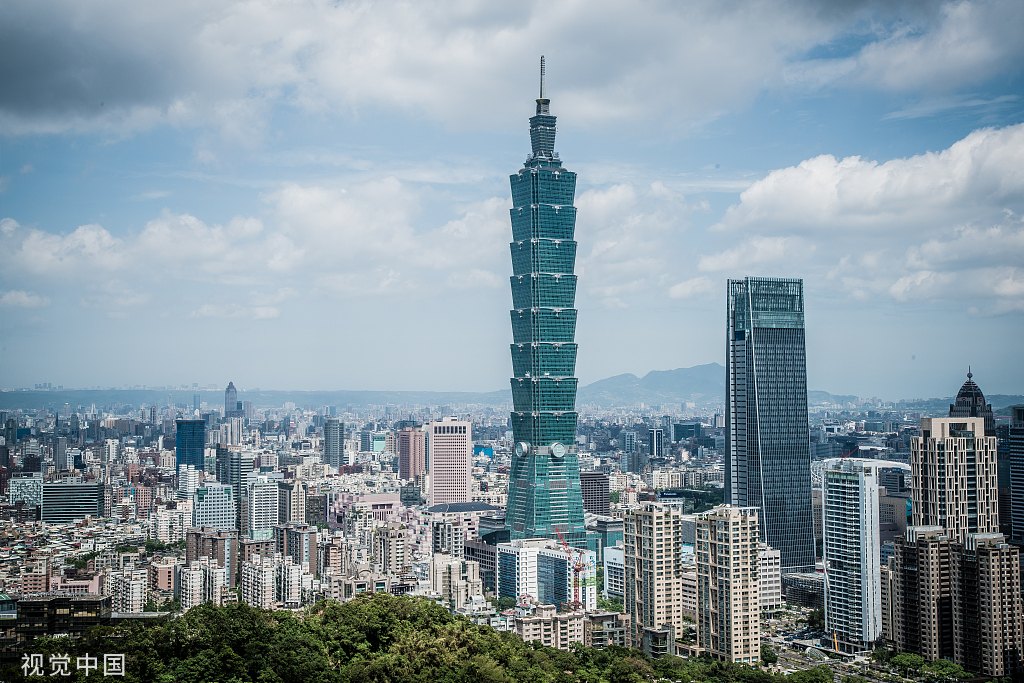Tourist safety behind cross-Straits move
By Yao Yuxin | China Daily | Updated: 2019-08-03 09:24

Editor's note: Given the current climate of cross-Straits relations, the Chinese mainland suspended issuing individual travel permits for Taiwan on Thursday. What does the move suggest? Two experts share their views on the issue with China Daily's Yao Yuxin. Excerpts follow:
DPP should stop splittist activities
Taiwan witnessed rapid growth in tourist arrivals from the mainland in the eight years before Tsai Ing-wen became the island leader in 2016.
Individual travel to Taiwan was first permitted for residents of Beijing, Shanghai and Xiamen, Fujian province, in 2011 when cross-Straits relations were good thanks partly to Ma Ying-jeou being the Taiwan leader. The arrangement was extended to 47 mainland cities over the following three years. As a result, mainland tourist arrivals in Taiwan peaked at more than 4 million in 2015.
But tourist arrivals began dropping after Tsai took office, because she and her Democratic Progressive Party refused to recognize the 1992 Consensus that there is only one China, which soured cross-Straits relations.
Mainland visitors-a large number of whom are individual travelers-account for about a quarter of Taiwan's total tourist arrivals, so the new curbs could rattle the island's tourism industry and hurt the broader economy. If the situation continues to worsen, the system for mainland tourists to apply for group travel to the island might also be affected in the foreseeable future.
But ignoring the mainland's huge contribution to the island's tourism sector prosperity and economic growth, Tsai and the DPP have more brazenly pushed forward their "Taiwan independence" agenda without thinking that, by further straining cross-Straits relations, they are compromising the well-being of Taiwan compatriots.
Besides, without any evidence to prove their outrageous claim, Tsai and her fellow DPP leaders accused the mainland of sending spies and interfering in the local elections last year, which put the safety of mainland individual travelers at risk.
The suspension of the individual travel permit program could reduce the number of visits by mainland tourists by about 700,000 in six months and exacerbate the negative growth of the island's tourism revenue. As such, the DPP should stop its "pro-independence" activities and desist from changing the status quo across the Straits for the good of the island and its residents.
Yin Cunyi, a professor at the Institute of Taiwan Studies, Tsinghua University
Move to defeat Tsai's evil designs
That the mainland has not suspended group travel to Taiwan suggests the central government is concerned about the safety of individual travelers to the island.
The "pro-independence" DPP recently urged the legislative council to change five legal terms and stipulate that any Taiwan resident having contact with the Chinese mainland could be charged with committing a criminal offense under "Taiwan security" grounds. DPP leaders have indicated that greater efforts would be made to pass a "law" to declare such Taiwan residents "agents" of the Communist Party of China. If these leaders succeed in their evil design, they would further hinder exchanges across the Straits.
Given the current cross-Straits tensions, the DPP, which has accused the mainland several times of espionage and interfering in the island's local elections, could also accuse mainland individual travelers of gathering sensitive information for Beijing. And being unfamiliar with the political landscape of the island and without a local guide, those innocent tourists could easily fall into the trap laid by the DPP, which could provoke a serious crisis across the Straits.
Also, since the island's election is scheduled for January, the Tsai administration may enact legislation maligning the mainland, so as to gain political leverage and win more votes. That some Taiwan leaders voiced their support for the rioters in Hong Kong who unleashed a wave of mindless violence recently should give an idea of their nefarious intentions.
Moreover, as Taiwan has no law protecting the legal rights of mainland residents, independent visitors to the island would find themselves helpless if they unwittingly get entangled in any untoward incident.
Thus, the suspension of the individual travel program is timely and aimed at ensuring the safety of mainland tourists.
Zhu Songling, a professor at the Institute of Taiwan Studies, Beijing Union University
The views don't necessarily represent those of China Daily.
























